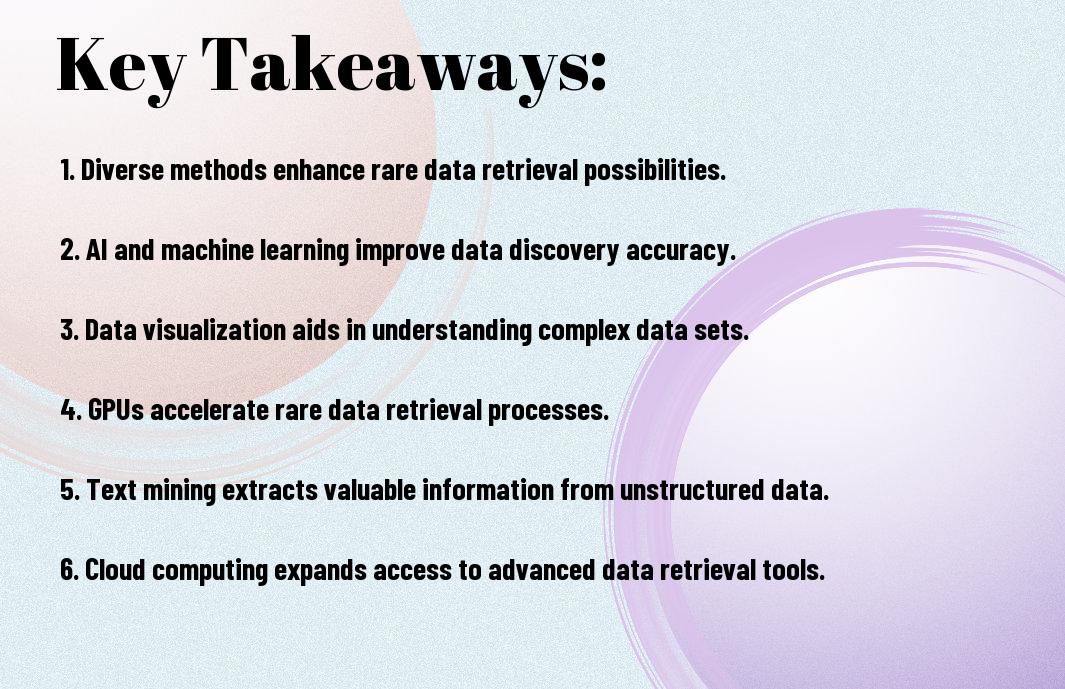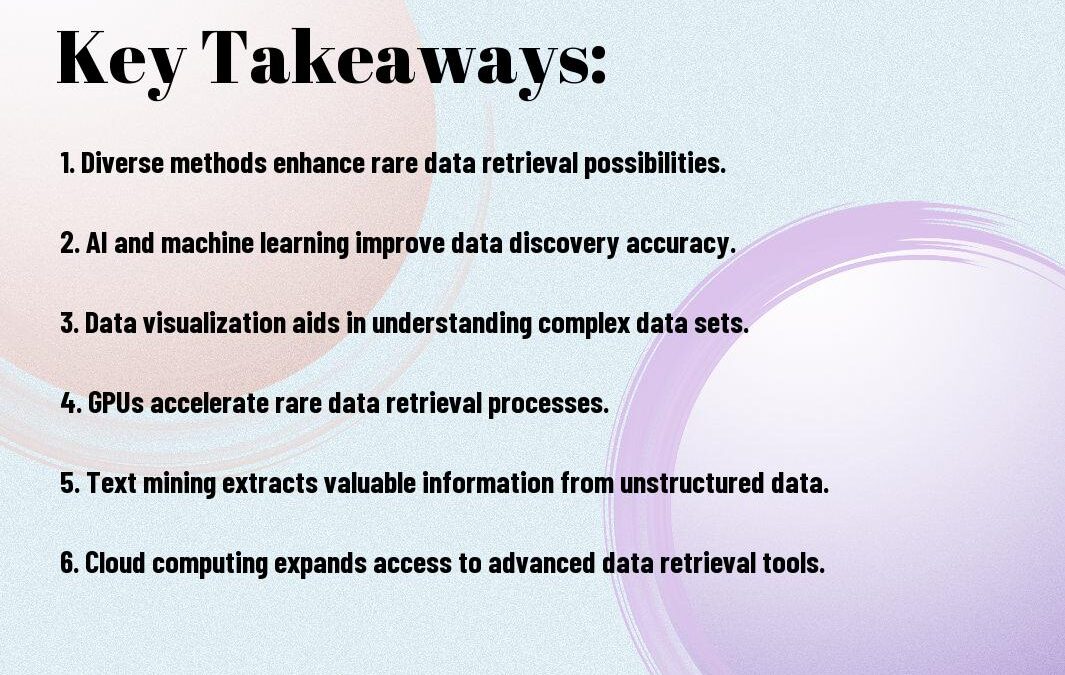Just like explorers deciphering ancient hieroglyphics, delving into rare data retrieval methods unveils a world of technological wonders waiting to be discovered. From advanced algorithms to cutting-edge software, this blog post will illuminate the intricate mechanisms behind these elusive techniques, shedding light on the mysterious world of data retrieval. Join us on this captivating journey as we unravel the technology that powers the retrieval of rare data, paving the way for new possibilities and discoveries in the digital age.

The Quest for Rare Data
Historical Background of Data Retrieval
Background: Before the digital age, data retrieval was a time-consuming process that involved sifting through physical documents and archives. The advent of computers revolutionized the field, making data storage and retrieval much more efficient.
The Importance of Unconventional Methods
Data: In the quest for rare data, sometimes conventional methods fall short. This is where unconventional data retrieval methods come into play, utilizing advanced technology and innovative techniques to uncover hidden information that may have previously been overlooked.
Historical: Throughout history, researchers and scientists have relied on unconventional methods to access rare data, whether it be deciphering ancient manuscripts or analyzing cosmic phenomena. These methods push the boundaries of what is possible and open up new avenues for discovery and understanding.
Unraveling the Technology
Principles of Rare Data Retrieval
On the journey to uncover rare data, it’s vital to understand the principles that guide the retrieval process. By delving into the fundamental aspects of data retrieval technologies, one can navigate the complexities of accessing elusive information.
Advanced Techniques and Tools
Technology has revolutionized rare data retrieval, offering advanced techniques and tools that amplify the search for valuable information. By harnessing innovative methods and sophisticated algorithms, researchers can push the boundaries of data retrieval capabilities.
- Technology
Artificial Intelligence Machine Learning Data Mining Natural Language Processing
It is through the integration of artificial intelligence, machine learning, data mining, and natural language processing that researchers can uncover rare data with precision and efficiency. These advanced techniques not only streamline the retrieval process but also enhance the quality and relevance of the data obtained.
Applications and Implications
Scientific Research and Discovery
Many scientific research projects rely on rare data retrieval methods to uncover hidden patterns and trends in complex datasets. By utilizing innovative data retrieval techniques, scientists can unlock new insights that can lead to groundbreaking discoveries in various fields.
Forensic Analysis and Investigation
With the advancements in rare data retrieval methods, forensic analysts can explore deeper into digital evidence to solve complex crimes and unravel intricate mysteries. These sophisticated techniques enable investigators to uncover hidden information and piece together crucial evidence that can be vital in solving cases.
Implications
The use of rare data retrieval methods has far-reaching implications in various sectors, from scientific research to criminal investigations. As technology evolves, these methods will continue to play a significant role in unlocking valuable insights and solving complex problems that were once thought unsolvable.
Overcoming Challenges and Limitations
Technical Hurdles and Solutions
To navigate the complexities of rare data retrieval methods, innovative solutions are imperative. As data sets become larger and more intricate, challenges such as processing speed and memory availability arise. Efficient algorithms and specialized hardware can help overcome these technical hurdles, ensuring smooth retrieval of valuable rare data.
Ethical Considerations and Responsibilities
With great technological power comes ethical responsibilities. When delving into rare data retrieval, it is crucial to consider privacy concerns, data ownership, and potential biases in the data sets. Implementing strict data protection protocols, obtaining consent when necessary, and promoting transparency in data usage are vital steps to uphold ethical standards in rare data retrieval.
Another crucial aspect to consider in rare data retrieval is the potential impact on individuals’ privacy and the broader societal implications. It is imperative to prioritize data security, confidentiality, and respect for individuals’ rights when accessing and utilizing rare data. Ethical guidelines and thoughtful considerations can help mitigate risks and ensure responsible use of rare data for the betterment of society.
Summing up
Taking this into account, delving into rare data retrieval methods can be a fascinating journey into the intricate world of technology and innovation. Just like Carl Sagan explored the mysteries of the cosmos, we can unravel the complexities of data retrieval techniques, expanding our knowledge and understanding of the digital landscape.

